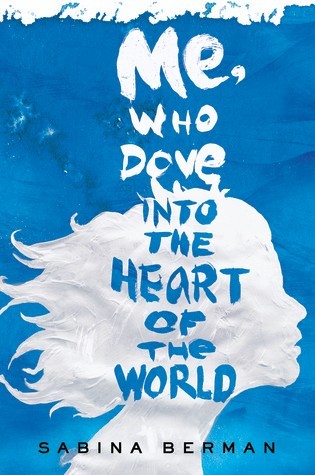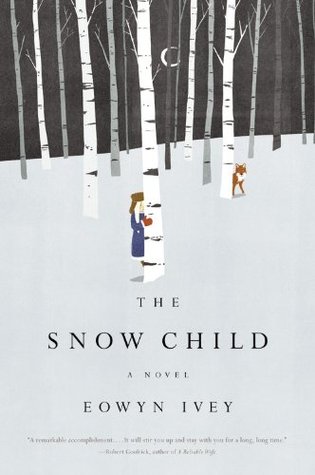Ruth Ozeki writes a dynamic novel of a young Japanese girl, Naoko Yasutani, hell bent on recording her great grandmother's life story into her journal as a distraction from the sheer hell that has become her own growing-up. Beaten regularly at school, ignored by her teachers and parents, her cries for help go unanswered as her mother struggles to make ends meet while Nao's father repeatedly attempts suicide. She can only imagine the effect her journal will have on the individual that finds it...
The magic of the narrative begins when Naoko's journal is found on the Canadian coast by writer's-block suffering author Ruth (hmm, semi autobiographical?) as she idly trawls the beach. Convinced that Naoko is in immediate danger, and desperate to discover if Naoko's family survived the devastating tsunami of 2011, Ruth becomes consumed with the journal and it's mysterious pieces of Yasutani family history.
 Naoko, known to her family as Nao (yes, please read it as "now"), documents the downward spiral that is her school and home life in detail, inwardly struggling with her father's suicide attempts after being downsized from his job in Silicon Valley and sent back to Japan. Nao feels outcasted with her family's new socio-economic status and the culture shock of being relocated to Tokyo, missing her life in California as the kids in her Japanese school pick her apart. She finds solace in correspondence and summers visiting with her great grandmother, Zen Buddhist monk Jiko.
Naoko, known to her family as Nao (yes, please read it as "now"), documents the downward spiral that is her school and home life in detail, inwardly struggling with her father's suicide attempts after being downsized from his job in Silicon Valley and sent back to Japan. Nao feels outcasted with her family's new socio-economic status and the culture shock of being relocated to Tokyo, missing her life in California as the kids in her Japanese school pick her apart. She finds solace in correspondence and summers visiting with her great grandmother, Zen Buddhist monk Jiko.
Jiko tells Nao of her great uncle, Haruki Yasutani, whom Nao's father was named for, and who died as a kamikaze pilot despite being strongly against the violence and maneuverings of Japan during World War II. Jiko tries to teach Nao the importance of being aware of all of the single moments that make up her life: the idea of each person and moment of consciousness being a "time being."
This brilliant concept takes hold of Ruth, as she struggles to translate the pieces of Nao's journal that aren't in English, and desperately attempts to seek out what ever became of any of the Yasutanis. The journal takes Ruth deeper into the precious moments that are building themselves into Nao's fate, but taking Ruth further and further away from completing her own work. Did Nao's father succeed in killing himself, and how did that affect his long suffering daughter? Was Jiko's shrine destroyed by the tsunami?
That makes up for the surface of the novel, but it's great depths are the truly impressive feat. From beautiful descriptions of Zen Buddhist practices to thoughts on quantum mechanics, the importance of a single moment within ones' lifetime or that of a family's, takes center stage. So many characters' shame makes them consider the meaning of their lives, as their conscientious objections to the moral issues of their individual eras join them across time. History, memories, and secrets all get blurred by the passage of time, and Ozeki perfectly captures the power these elements hold over our awareness of what the facts really are.
This review can't do Ruth Ozeki's book justice. So much happens so carefully, you must read it to appreciate this grand ode to storytelling. I'm too afraid of giving away something really cool to continue going on about it! Enjoy it in all of it's well-crafted layers!
The magic of the narrative begins when Naoko's journal is found on the Canadian coast by writer's-block suffering author Ruth (hmm, semi autobiographical?) as she idly trawls the beach. Convinced that Naoko is in immediate danger, and desperate to discover if Naoko's family survived the devastating tsunami of 2011, Ruth becomes consumed with the journal and it's mysterious pieces of Yasutani family history.
 Naoko, known to her family as Nao (yes, please read it as "now"), documents the downward spiral that is her school and home life in detail, inwardly struggling with her father's suicide attempts after being downsized from his job in Silicon Valley and sent back to Japan. Nao feels outcasted with her family's new socio-economic status and the culture shock of being relocated to Tokyo, missing her life in California as the kids in her Japanese school pick her apart. She finds solace in correspondence and summers visiting with her great grandmother, Zen Buddhist monk Jiko.
Naoko, known to her family as Nao (yes, please read it as "now"), documents the downward spiral that is her school and home life in detail, inwardly struggling with her father's suicide attempts after being downsized from his job in Silicon Valley and sent back to Japan. Nao feels outcasted with her family's new socio-economic status and the culture shock of being relocated to Tokyo, missing her life in California as the kids in her Japanese school pick her apart. She finds solace in correspondence and summers visiting with her great grandmother, Zen Buddhist monk Jiko.Jiko tells Nao of her great uncle, Haruki Yasutani, whom Nao's father was named for, and who died as a kamikaze pilot despite being strongly against the violence and maneuverings of Japan during World War II. Jiko tries to teach Nao the importance of being aware of all of the single moments that make up her life: the idea of each person and moment of consciousness being a "time being."
This brilliant concept takes hold of Ruth, as she struggles to translate the pieces of Nao's journal that aren't in English, and desperately attempts to seek out what ever became of any of the Yasutanis. The journal takes Ruth deeper into the precious moments that are building themselves into Nao's fate, but taking Ruth further and further away from completing her own work. Did Nao's father succeed in killing himself, and how did that affect his long suffering daughter? Was Jiko's shrine destroyed by the tsunami?
That makes up for the surface of the novel, but it's great depths are the truly impressive feat. From beautiful descriptions of Zen Buddhist practices to thoughts on quantum mechanics, the importance of a single moment within ones' lifetime or that of a family's, takes center stage. So many characters' shame makes them consider the meaning of their lives, as their conscientious objections to the moral issues of their individual eras join them across time. History, memories, and secrets all get blurred by the passage of time, and Ozeki perfectly captures the power these elements hold over our awareness of what the facts really are.
This review can't do Ruth Ozeki's book justice. So much happens so carefully, you must read it to appreciate this grand ode to storytelling. I'm too afraid of giving away something really cool to continue going on about it! Enjoy it in all of it's well-crafted layers!





